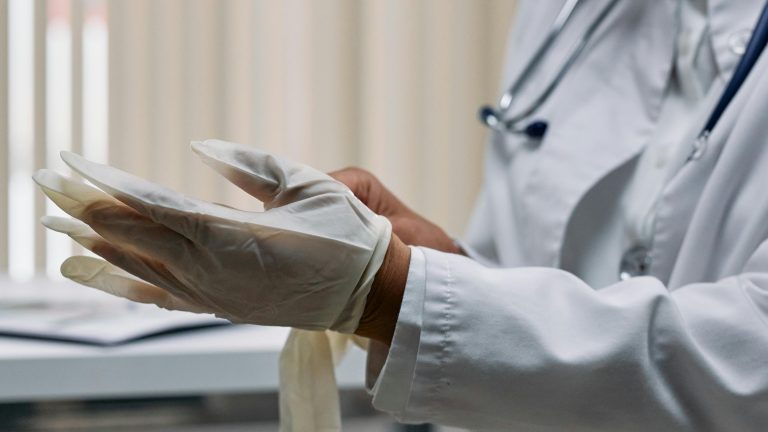The relationship between testosterone and prostate cancer has been a topic of significant debate and research within the medical community. While early studies suggested a potential link between high testosterone levels and the development of prostate cancer, more recent research has challenged these assumptions. This article delves into the controversies and realities surrounding testosterone and prostate cancer, providing a comprehensive overview of current understanding.
- The Role of Testosterone in the Male Body
- Historical Perspectives on Testosterone and Prostate Cancer
- Challenging the Myth: Modern Research Findings
- Current Guidelines and Recommendations
- The Impact of Lifestyle Factors
- The Future of Research
- Conclusion
- Studies and Sources
- FAQs: Testosterone and Prostate Cancer
- Question: Does high testosterone cause prostate cancer?
- Question: Is Testosterone Replacement Therapy (TRT) safe for men with prostate cancer?
- Question: What is the saturation model in relation to testosterone and prostate cancer?
- Question: What lifestyle changes can reduce the risk of prostate cancer?
- Question: How often should men on TRT be monitored for prostate health?
The Role of Testosterone in the Male Body
Testosterone, the primary male sex hormone, plays a crucial role in various bodily functions. It is responsible for the development of male reproductive tissues, the promotion of secondary sexual characteristics such as increased muscle and bone mass, and the maintenance of overall health and well-being. Testosterone levels naturally decline with age, which can lead to a variety of health issues.
Historical Perspectives on Testosterone and Prostate Cancer
Historically, it was believed that high levels of testosterone could increase the risk of prostate cancer. This belief was rooted in the observation that men who developed prostate cancer often had higher testosterone levels. Furthermore, androgen deprivation therapy (ADT), which reduces testosterone levels, has been used to treat advanced prostate cancer, reinforcing the idea that testosterone fuels prostate cancer growth.
Challenging the Myth: Modern Research Findings
Recent studies have challenged the traditional view that high testosterone levels are a direct risk factor for prostate cancer. One landmark study conducted by Dr. Abraham Morgentaler at Harvard Medical School found no evidence that higher testosterone levels increase the risk of prostate cancer. In fact, some research suggests that low testosterone levels may actually be linked to a higher risk of developing more aggressive forms of prostate cancer.
Testosterone Replacement Therapy (TRT) and Prostate Cancer
Testosterone Replacement Therapy (TRT) is commonly used to treat men with low testosterone levels. Concerns about the potential link between TRT and prostate cancer have led to cautious use of this therapy. However, numerous studies have shown that TRT does not increase the risk of prostate cancer in men with normal prostate exams and PSA levels.
Understanding the Saturation Model
The saturation model, proposed by Dr. Morgentaler, offers an explanation for the relationship between testosterone and prostate cancer. According to this model, prostate cancer cells are highly sensitive to low levels of testosterone, but once a certain threshold is reached (the saturation point), additional testosterone does not further stimulate cancer growth. This model suggests that normalizing testosterone levels through TRT should not increase prostate cancer risk.
Current Guidelines and Recommendations
Based on current evidence, medical guidelines have evolved to reflect a more nuanced understanding of testosterone and prostate cancer. Organizations such as the American Urological Association (AUA) and the Endocrine Society recommend that men with low testosterone levels should not be denied TRT solely based on concerns about prostate cancer risk. Instead, decisions regarding TRT should be individualized, taking into account each patient’s unique medical history and risk factors.
Screening and Monitoring
For men undergoing TRT, regular screening and monitoring are essential. This includes periodic prostate exams and PSA tests to ensure that any changes in prostate health are detected early. Physicians should work closely with patients to monitor their response to therapy and adjust treatment plans as needed.
Understanding Testosterone Testing: When and How to Get Checked
The Impact of Lifestyle Factors
While the relationship between testosterone and prostate cancer continues to be studied, it is important to consider the impact of lifestyle factors on prostate cancer risk. A healthy diet, regular exercise, and maintaining a healthy weight can all contribute to overall prostate health and may reduce the risk of developing prostate cancer.
Diet and Nutrition
Certain dietary choices have been linked to prostate cancer risk. Diets high in red and processed meats, as well as high-fat dairy products, have been associated with an increased risk of prostate cancer. Conversely, diets rich in fruits, vegetables, and whole grains may have a protective effect. Foods rich in antioxidants, such as tomatoes (which contain lycopene) and green tea, have also been studied for their potential benefits in reducing prostate cancer risk.
Exercise and Physical Activity
Regular physical activity is beneficial for overall health and may help reduce the risk of prostate cancer. Exercise can help maintain a healthy weight, improve immune function, and reduce inflammation, all of which are important factors in cancer prevention.
Obesity and Prostate Cancer
Obesity has been identified as a risk factor for more aggressive forms of prostate cancer. Maintaining a healthy weight through a balanced diet and regular exercise is crucial for reducing this risk. Weight management strategies should be tailored to individual needs and preferences to ensure long-term success.
The Future of Research
As research on testosterone and prostate cancer continues to evolve, it is likely that new insights and treatments will emerge. Ongoing studies aim to better understand the complex interactions between hormones, genetics, and lifestyle factors in prostate cancer development and progression.
Personalized Medicine
The future of prostate cancer treatment may lie in personalized medicine, where therapies are tailored to an individual’s genetic makeup and specific cancer characteristics. Advances in genetic testing and biomarker identification are paving the way for more targeted and effective treatments.
Emerging Therapies
Emerging therapies, such as immunotherapy and targeted therapies, hold promise for improving outcomes in prostate cancer patients. These treatments work by harnessing the body’s immune system or targeting specific molecular pathways involved in cancer growth.
Conclusion
Understanding the controversies and realities of testosterone and prostate cancer is essential for making informed decisions about health and treatment options. While historical beliefs have linked high testosterone levels with increased prostate cancer risk, modern research has provided a more nuanced perspective. Testosterone Replacement Therapy, when appropriately monitored, does not appear to increase prostate cancer risk in men with normal prostate exams and PSA levels. Maintaining a healthy lifestyle through diet and exercise can further support prostate health. As research continues to advance, new discoveries will likely enhance our understanding and treatment of prostate cancer.
Testosterone and Immune Function: Strengthening the Body’s Defense System
Studies and Sources
Key Studies and Research Articles
- Morgentaler, A., et al. – “Testosterone Therapy in Men with Prostate Cancer: New Paradigms and Controversies.” Read the study.
- American Urological Association (AUA) – “Guideline on the Management of Testosterone Deficiency.” Read the guidelines.
- Endocrine Society – “Testosterone Therapy in Adult Men with Androgen Deficiency Syndromes: An Endocrine Society Clinical Practice Guideline.” Read the guideline.
- Harvard Medical School – “Testosterone and Prostate Cancer: Debunking Myths.” Read the article.
Additional Resources
- National Cancer Institute (NCI) – “Prostate Cancer Treatment (PDQ®)–Patient Version.” Read more.
- Mayo Clinic – “Prostate Cancer: Diagnosis and Treatment.” Read more.
Testosterone and Diabetes: Exploring the Link and Managing Risk Factors
“`html
FAQs: Testosterone and Prostate Cancer
Question: Does high testosterone cause prostate cancer?
Recent studies have found no evidence that higher testosterone levels increase the risk of prostate cancer. In fact, some research suggests that low testosterone levels may be linked to a higher risk of developing more aggressive forms of prostate cancer.
Question: Is Testosterone Replacement Therapy (TRT) safe for men with prostate cancer?
Numerous studies have shown that TRT does not increase the risk of prostate cancer in men with normal prostate exams and PSA levels. However, it is important for men undergoing TRT to have regular screening and monitoring.
Question: What is the saturation model in relation to testosterone and prostate cancer?
The saturation model suggests that prostate cancer cells are highly sensitive to low levels of testosterone, but once a certain threshold is reached (the saturation point), additional testosterone does not further stimulate cancer growth.
Question: What lifestyle changes can reduce the risk of prostate cancer?
Maintaining a healthy diet, regular exercise, and a healthy weight can contribute to overall prostate health and may reduce the risk of developing prostate cancer.
Question: How often should men on TRT be monitored for prostate health?
Men undergoing TRT should have regular prostate exams and PSA tests to ensure any changes in prostate health are detected early. Monitoring should be done as advised by their healthcare provider.
“`
Testosterone and Longevity: Strategies for Promoting Healthspan and Lifespan





